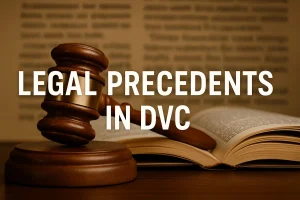When dealing with insurance claims, the idea of outsourcing the hassle to a claim management company sounds appealing. These firms often promise fast results, minimal effort, and the experience needed to “fight for your rights.” But behind the glossy sales pitch, there’s a growing concern: are claim management companies actually helping—or quietly hurting—your ability to recover fair compensation?
In this article, you’ll learn what claim management companies do, why they’re so tempting to use, and the lesser-known risks that could jeopardize your case. We’ll also cover safer, more effective alternatives so you can make the best decision for your financial future.
What Are Claim Management Companies?

Claim Management Companies (CMCs) are third-party businesses that assist individuals in pursuing compensation claims—usually involving insurance, personal injury, or financial disputes. They’re not lawyers, and they’re not insurance professionals. Instead, they act as middlemen between you and the insurer.
CMCs usually take a cut of your payout if they succeed. This “no win, no fee” model seems like a win-win—but can become a problem when the fees are high or the service is poor.
Why People Choose CMCs
There’s no denying the appeal. Claim management companies offer what many people want: convenience. You hand over your documents, and they supposedly handle the rest. Their advertising often targets people overwhelmed by legal or insurance processes—especially after a stressful event like a car accident or financial loss.
For those unfamiliar with claims procedures, this looks like an easy way out. But ease often comes at a price.
The Hidden Downsides of Working with a CMC
Here’s where things get risky. While some companies operate fairly, many do not.
- High Fees: It’s common for CMCs to take 25% to 40% of your settlement. That can add up fast—especially if your claim is worth thousands.
- Unqualified Staff: Unlike lawyers or certified adjusters, many CMCs lack formal legal training. This can lead to poorly handled cases.
- Limited Support: Once you sign, you may face slow communication, long delays, or being handed off to a call center.
- Lack of Accountability: If they make a mistake or miss a deadline, you’re the one who pays the price.
Many clients report feeling like they lost control of their own claim. And if your CMC fails, it’s harder to start over or file a complaint with your insurer.
Real-World Risks: When CMCs Backfire
Consider these scenarios:
- A claimant agrees to a fast settlement, unaware it’s far below market value—because the CMC pushed for a quick win to earn their fee.
- A file is submitted late, and the insurer closes the claim—now the window to appeal has passed.
- Miscommunication between the CMC and insurer leaves the claimant responsible for documentation that was never submitted.
These mistakes are more common than you’d expect, especially when companies operate without tight regulation.
Regulation and Oversight: A Mixed Bag
In the U.K., CMCs must be authorized by the Financial Conduct Authority (FCA). But in the U.S., oversight is patchy. Some states have rules, while others allow these companies to operate with little scrutiny.
Before hiring one, ask: Are they licensed? What’s their dispute resolution policy? What happens if they miss something important?
Reading the fine print—and asking questions—can protect you from future headaches.
Smarter Alternatives to Claim Management Companies

You don’t have to go it alone—but you don’t need to overpay either.
- File it Yourself: Many insurance claims can be handled independently with the right guidance. Templates, public resources, and legal aid groups can help.
- Hire a Public Adjuster: Especially for property or total loss claims, certified public adjusters work solely on your behalf—and typically deliver better results.
- Work with an Attorney: For complex or disputed claims, hiring a lawyer ensures professional representation and legal protection.
These options offer more control, clearer pricing, and better accountability.
Final Thoughts: Think Before You Sign
Claim management companies offer convenience, but not always competence. In many cases, they can delay your claim, reduce your payout, or lock you into a contract that leaves you frustrated.
Before you hand over your case—and a percentage of your compensation—take the time to weigh your options. Informed decisions lead to stronger outcomes.
If you want your claim handled with care, transparency, and a higher chance of success, skip the middleman and seek a better path forward.


